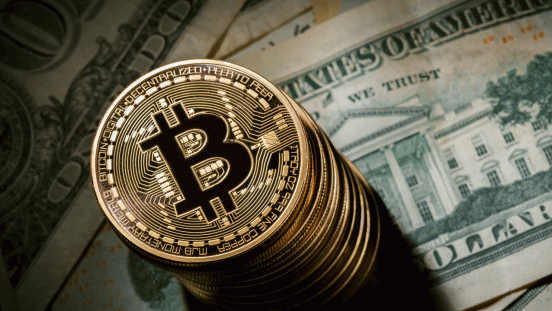Today, the government’s position in the regulation of the economy is a non-stop debate. Indeed, there is a true tension between the importance of protecting the people and the notion of freedom of the individuals. However, this confrontation is on the brink of changing: new economies are created with a view to limit the government’s control. This is the case of crypto-currencies.
A crypto-currency is a virtual currency: it can’t be touched. Therefore, the transactions are made using cryptography: complex mathematical equations are resolved and each equation results in an exchange of money. [1]
The most famous, and so far, successful crypto-currency is Bitcoin. Founded in 2009 by an anonymous programmer under the name of Satoshi Nakamoto, its stock value has exploded: valued at 568.12 $ in September 1st, 2016, it amounted for 4935.53 $ one year later[2]. The value of a bitcoin was thus multiplied by 9. This growth is due to big corporation like Recruit Lifestyle – a Japanese brand owning 260,000 commercial facilities, food establishments, drugstores and other retail locations nationwide – accepting payments via Bitcoin[3]. This popularization of Bitcoin can be explained by numerous factors.
First, Bitcoin is a decentralised and unregulated currency, which means that it has no affiliation to governments or central banks. Therefore, there is no taxation. Moreover, there is no “middle men” in a transaction between bitcoin owners: it does not go through a bank. A complex mathematical equation is resolved by a computer for each Bitcoin sent. Bitcoin consequently disrupts the implanted financial systems by offering a trending alternative.[4]
Second, Bitcoin owners are completely anonymous. Although the transactions are stored in a public cloud, the identity of a user sending or receiving bitcoins remains unknown. Therefore, Bitcoin minimises the risks of identity theft and stolen card information contrary to banks. Cyber-hacking is today a real treat, the latest victim being Equifax – a major consumer credit reporting agency – having compromised sensitive information including Social Security numbers of 143 million Americans.
Some will say Bitcoin’s business ethics are questionable: this ran-by-no-one cryptocurrency is an unequal competition to currency exchanges and moreover Bitcoin is a refuge for illegal business because of its anonymous policy[5]. Thus, in the case of Bitcoin, law enforcement can only act once a criminal offence has been done. However, in my opinion, by offering a regulation-free currency, Bitcoin highlights the importance of the individuals and liberates us from any kind of economic dependence and therefore are a step forward a more liberal, independent society.[6] Competition – be it ethical or not – is what drives our liberal society.
N.B I am (not) influenced by the fact that I own 0.1 Bitcoin, today valued at 460$, and that I hope to see it grow substantially in the future.
[1] Chohan, Usman W., Cryptocurrencies: A Brief Thematic Review (August 4, 2017). Available at SSRN: https://ssrn.com/abstract=3024330
[2] Bitcoin (USD) Price: https://www.coindesk.com/price/
[3] Japanese retailers Bic Camera and Recruit Lifestyle to start accepting bitcoin payments (April 5, 2017).
Available at : http://www.econotimes.com/Japanese-retailers-Bic-Camera-and-Recruit-Lifestyle-to-start-accepting-bitcoin-payments-627712
[4] Popper, Nathaniel, What Is Bitcoin? All About the Mysterious Digital Currency ( May 15, 2017)
[5] Boylan, Dan , Military, intelligence agencies alarmed by surge in bitcoin value in ‘dark web’ fight (August 10, 2017)
Available at : http://www.washingtontimes.com/news/2017/aug/10/bitcoin-value-surge-sign-of-criminal-activity/
[6] Sterlin, Lujan, Bitcoin was Built to Incite Peaceful Anarchy (January 2016)
Available at : https://news.bitcoin.com/bitcoin-built-incite-peaceful-anarchy/

